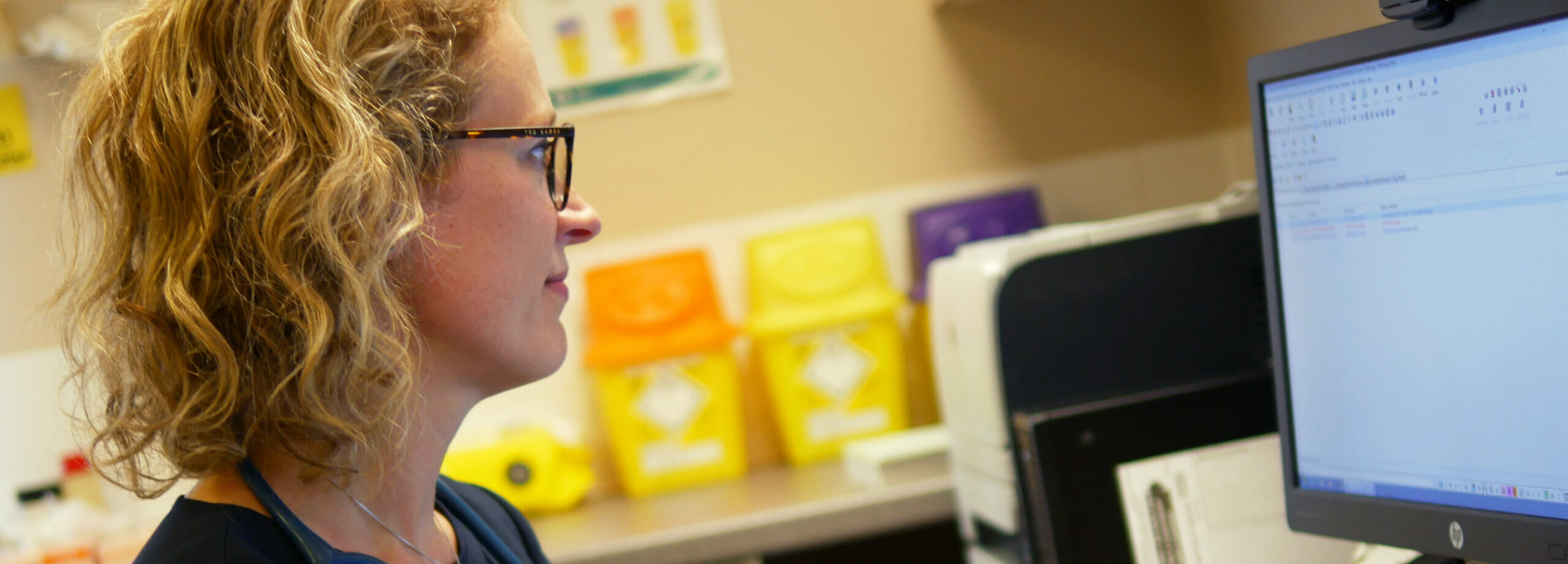Digital solution to reduce computer energy use at Imperial College Healthcare NHS Trust
Summary
Imperial College Healthcare NHS Trust tested and implemented new software that automatically turns off idle computers overnight, saving 590 tonnes of carbon and £440k annually without any impact on computer security or patient or staff experience.
Imperial College Healthcare NHS Trust provides care for over 1 million people each year, serving local communities in the 8 boroughs that form the North West London ICS. The trust is one of the largest in the country with more than 15,000 staff.
The issue
In 2021/22, electricity use accounted for 30% of Imperial’s carbon footprint. While heating and powering lifesaving equipment accounted for most of this, staff members had expressed their frustration at the number of computers left on but unused for long periods.
The trust explored how it could save energy by ensuring computers were turned off when not in use. This initially seemed simple – use communication materials to encourage staff to turn off computers not in use. However, it proved difficult to ensure this message reached staff working complex rota patterns. The trust’s ICT team also needed to ensure that computers were left on when essential security updates needed to be received.
The solution
Imperial’s ICT team identified software that enabled them to monitor individual computer use, remotely turn off computers not in use and back on for security updates. The software reported that almost a third of computers were left on between 6pm and 8am, with most also over the weekend. None of these computers were needed for clinical use during these times.
The team piloted automatically shutting down a set of idle computers in 1 department every evening, and then gradually expanded this to turning off a third of the trust’s computers overnight.
There was an initial small technical issue around running the software on different computers with varying requirements, but the team found solutions.
The biggest challenge was how to demonstrate cost savings for the project. Imperial’s ICT team worked with the Green team and the software suppliers to create a way of independently calculating and tracking the carbon and financial savings. These were initially attributed to the trust’s estates team, but Imperial’s Net Zero Board ensured that the ICT and Green teams were recognised for their work and the project’s savings were attributed to multiple budgets.
The impact
In 2022/23, turning off idle computers using the new software saved the trust around 590 tonnes of carbon – it would take 30,000 trees to capture this.
Energy prices rose steeply, meaning that the project achieved a return on investment within 6 months and saved the trust £440k in the first year alone and without any impact on patient or staff experience.
Beyond carbon and financial savings, the project helped to forge stronger relationships between several different teams who have since collaborated on other projects to help reduce the trust’s environmental impact.
Learning points
Engaging and collaborating with other relevant teams early in the project was key. Framing the project as a win-win for cost and carbon savings helped encourage buy-in.
Time invested at the beginning of the project to calculate accurate baselines across the trust was invaluable.
Once the software had been deployed, expanding its coverage while responding to exceptions and keeping patient safety front of mind helped to ensure success.
Next steps
Imperial has worked with North West London Procurement Partnership to set up a framework resellers model so that other organisations in north west London can rapidly adopt a similar solution without the need for a full procurement exercise. The ICT and Green teams have also hosted sessions to help other trusts with their business case.
The trust is now exploring other options for expanding its power-saving policy.
The team at Imperial would like to mark the significant contribution to this project of Norma Campbell, ICT NWLP relationship manager, who sadly died in January 2024.
Want to know more?
Contact: imperial.greenplan@nhs.net

